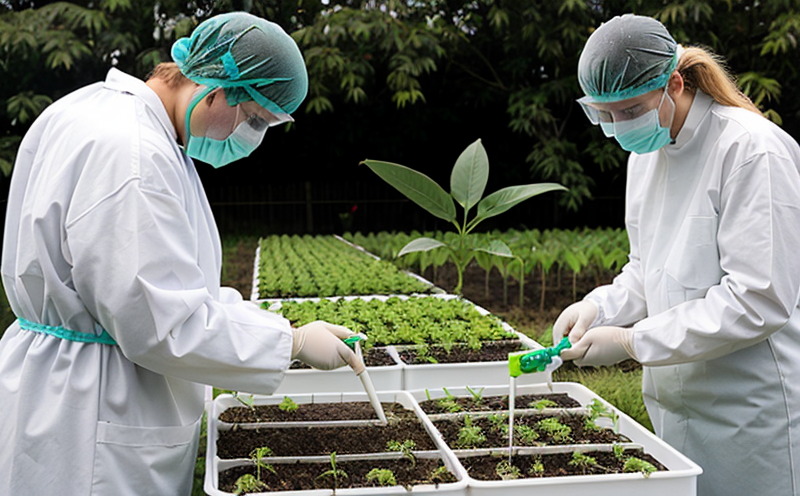Fungal Culture Isolation Testing in Plants
Plant disease and pathogen testing is a critical aspect of ensuring agricultural health and productivity. Fungal culture isolation plays a pivotal role in this process, allowing for the identification and analysis of fungal pathogens that can affect plant growth, yield, and overall health.
The first step in fungal culture isolation involves the collection of diseased or symptomatic plant samples from fields, greenhouses, nurseries, or storage facilities. These samples are then carefully transported to the laboratory where they undergo preliminary examination under a microscope. If fungal structures such as hyphae or spores are observed, further testing is initiated.
The isolation process itself involves inoculating the collected plant material onto selective media that favors fungal growth while inhibiting bacterial and other microorganism growth. This step requires a sterile environment and specialized equipment to ensure accuracy and reliability of results. Once the fungi have colonized the medium, they are further identified using morphological characteristics and biochemical tests.
Advanced molecular techniques such as Polymerase Chain Reaction (PCR) and DNA sequencing can also be employed for species-specific identification, especially when dealing with rare or emerging fungal pathogens. These methods provide accurate identification down to the strain level, which is crucial for understanding the epidemiology of plant diseases and tailoring appropriate control strategies.
The entire process from sample collection to final identification typically takes 5-7 days but can vary depending on the complexity of the sample and the specific fungal species being tested. Compliance with international standards such as ISO 14698 ensures that our procedures meet industry best practices for cleanliness, safety, and efficacy.
Understanding the lifecycle and behavior patterns of these pathogens is essential for developing effective management strategies. By isolating and characterizing fungi in plants, researchers and farmers can implement targeted interventions such as crop rotation, chemical treatments, or biological control agents like beneficial microbes that compete with harmful fungi for resources.
Benefits
- Precision Diagnosis: Accurate identification of fungal pathogens enables precise diagnosis and treatment plans.
- Epidemiological Insight: Provides deep insights into the spread and prevalence of plant diseases within a region or farm.
- Improved Yield: Early detection and intervention can prevent significant loss in crop yield due to fungal infections.
Industry Applications
Fungal culture isolation testing is widely used across various sectors within agriculture and forestry. In commercial horticulture, it helps maintain the health of ornamental plants by identifying and managing fungal infections early. For fruit growers, this service ensures that their produce remains free from contamination that could affect marketability.
In crop production, especially with monoculture systems, understanding the presence of specific fungi is crucial for developing sustainable agricultural practices. Forestry applications include monitoring tree health in plantations and identifying potential threats to forest ecosystems. Additionally, this testing supports seed certification programs ensuring that only healthy seeds are used for propagation.
The knowledge gained from fungal culture isolation tests contributes significantly to academic research aimed at understanding the complex interactions between plants, fungi, and environmental factors. This information is vital for breeding programs focused on developing resistant plant varieties against common pathogens.
Quality and Reliability Assurance
- Compliance with Standards: Our testing follows stringent international standards including ISO 14698 for cleanroom practices, ensuring high-quality results.
- Repeatable Results: Consistent methodologies and equipment guarantee that each test yields reliable outcomes.
We employ experienced microbiologists who follow standardized protocols to minimize human error. Regular calibration of laboratory instruments ensures precise measurements throughout the testing process. Furthermore, our quality control measures include independent verification by second reviewers for critical samples suspected to contain rare or difficult-to-detect fungi.





